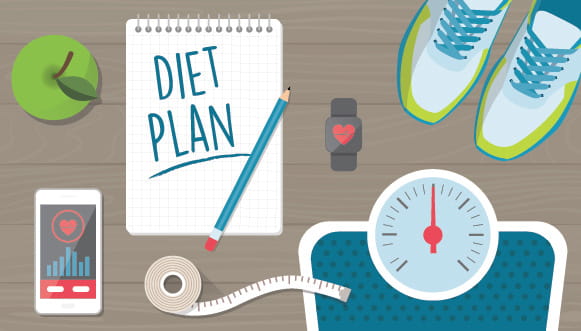I often get asked which diet I think is best and would recommend. It's a question that's both difficult and easy to answer.
While some diets can be a therapeutic tool for people with medical conditions — such as high blood pressure, diabetes or rheumatoid arthritis — the vast majority of people who follow a diet do so to lose weight.
The major drawback of almost every trendy, popular diet — including keto, paleo, whole30, intermittent fasting and everything in between — is that they're very restrictive and difficult to sustain. These diets are achievable for some time, but almost all of us will encounter situations such as going out to dinner, social gatherings, celebrations and busy schedules that wear away at our intentions.
Another huge drawback is that many of these diets restrict entire food groups, making it hard to obtain certain essential nutrients.
For instance, it may be hard to get enough calcium with the whole30 or paleo diet since these diets restrict both dairy foods and most almond milk brands found at grocery stores.
Despite all this, you may still decide to try dieting. If so, you're probably wondering which is best.
Which diet is best for me?
Weight loss can be achieved with any one of today's popular diets. However, once you stop the diet...the weight is often regained and another diet (maybe even a different one this time) follows a few months later.
This cycle leads to an unhealthy behavior pattern called yoyo-dieting or weight cycling, which is detrimental to our bodies because it leads to muscle loss and even potentially bone loss. It also takes a toll on our mental health. But let me tell you —it is the diet, not you!
The reality is that there's no one best diet for everyone. Rather, the best "diet" is the one that works for you and that includes plenty of veggies, fruits and quality protein sources.
Instead of focusing on a particular diet, I recommend primarily choosing whole, less-processed foods, including cultural foods, and practicing mindfulness with celebration foods.
This time, ditch the fad diets and try adding more nourishing foods into your day-to-day eating by:
- Learning to prepare a few nutritious, easy meals
- Relying less on restaurant and fast food
- Sticking with regular meal and snack times that work for you
- Thinking about what you want to eat for the next few days before going to the grocery store
- Asking yourself if you are eating a serving of veggies at both lunch and dinner
- Opting for fruit and/or nuts while snacking
- Including nutritious time-savers, like fresh or frozen precut fruits & veggies
Depending on where you are in your wellness journey, pick one or a few of these suggestions to incorporate into your daily life. Start by creating an action plan and identifying how you might overcome obstacles that will arise, such as stressful work weeks or celebrations.
And keep in mind that social support is one of the keys to changing our habits, so ask your family and/or friends to help you reach the goals you want to achieve.
If you do decide to try a diet, make sure you know and understand the pros and cons of today's popular diets. And be sure to let you doctor know first, since some medical conditions and medications make these diets unsafe. Lastly, consider meeting with a registered dietitian so you can make sure the diet you've chosen won't result in a depletion of important nutrients.








